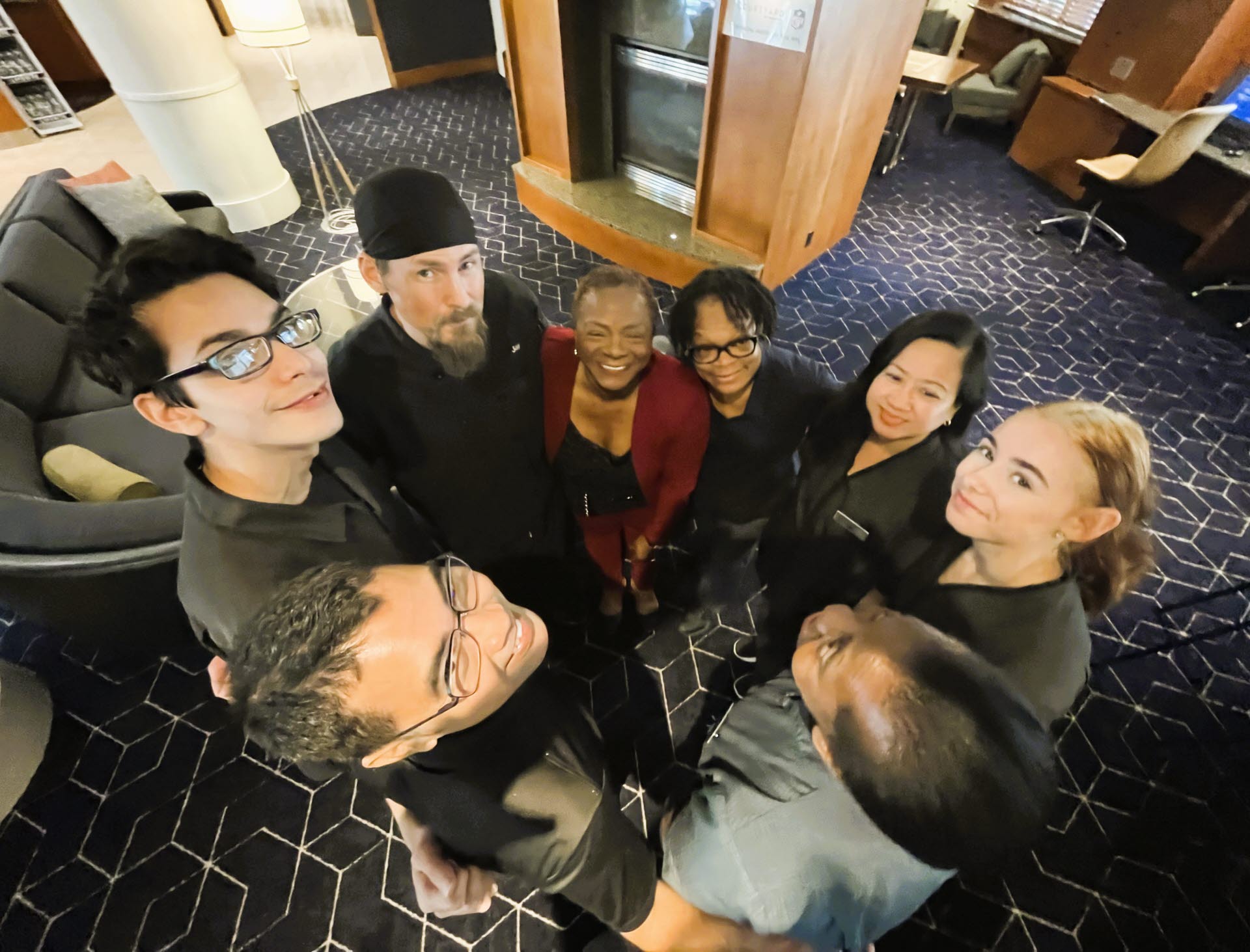Attracting and Retaining Top Talent in Hospitality
By: David Aungst – President, High Hotels Ltd. and Lindsay McGuire – Senior Human Resources Business Partner, High Company LLC
The hospitality industry, like most industries, is experiencing a transformative shift in how it attracts and retains top talent. With evolving employee expectations and a competitive job market, businesses must adapt to stay ahead. Creating a positive work culture, offering flexible work options, prioritizing employee development, and leveraging diverse recruitment strategies that cater to the changing demographics of the hospitality workforce, all while navigating the industry’s demanding nature and often inconsistent schedules is the challenge we need to overcome. This article explores the future of hospitality industry workforce management and key strategies for success
Here are some key strategies and trends influencing the future of the hospitality workforce:

1. Enhanced Compensation and Benefits
To attract and retain employees, many hotels and restaurants are increasing wages and expanding benefits. A 2024 survey by the American Hotel & Lodging Association revealed that 86% of hotels have raised wages, and 52% are offering more flexible hours. These changes are crucial in making hospitality roles more appealing and competitive, reflecting best practices in workforce management for hospitality.
2. Generation Shift
The rise of Millennials and Gen Z in the workforce brings different expectations regarding work-life balance, purpose-driven careers, and technology usage. Understanding generational differences should be a top priority for leaders focusing on hospitality workforce management.
3. Diversity and Inclusion
Prioritize creating a diverse and inclusive workplace to attract and retain a wider range of talent.
4. Emphasis on Well-being
Employee well-being is becoming a top priority. Mental health support and work-life balance initiatives are essential in reducing burnout and improving job satisfaction. Workforce management for hospitality now includes emotional and psychological health planning as a core part of employee engagement strategies.
5. Focus on Flexibility
Offer flexible scheduling options like part-time work, compressed workweeks, and remote work, where applicable, to accommodate different lifestyles. This is a key factor in modern hospitality workforce management.

6. Open Communication
Foster a culture of open communication where employees feel comfortable voicing concerns and providing feedback.
7. Leadership Development
Investing in leadership development is vital for creating a motivated and loyal workforce. Understanding the 5 essentials of hospitality leadership — such as communication, empathy, adaptability, vision, and integrity — can guide managers in fostering a culture of continuous improvement and professional development. This not only helps in retaining top talent but also in building a strong leadership pipeline.
8. Career Development Pathways
Create clear career progression paths with opportunities for training, mentorship, and skill development to help employees advance within the company.
9. Upskilling and Reskilling
Invest in training programs to equip employees with new skills necessary to adapt to evolving industry needs, such as digital literacy and customer service techniques.
10. Employee Recognition Programs
Implement regular recognition programs to acknowledge and celebrate employee contributions and achievements, thereby boosting morale. These programs don’t need to be large or expensive; the key is that recognition should be meaningful and timely.
11. Integration of Technology and Automation
The adoption of technology and automation is revolutionizing the hospitality industry. By streamlining administrative tasks, staff can focus more on enhancing the guest experience. For a deeper dive into how AI is transforming service and operations, explore how AI is being used in hospitality.
This shift not only improves operational efficiency but also increases job satisfaction by allowing employees to engage in more meaningful and rewarding work. Supporting employees with ongoing training to stay current and understand the benefits of technology and automation is critical.

12. Stay True to Your Mission, Vision, and Values
Employees are increasingly seeking employers who align with their values. To attract and retain well-matched team members, it’s crucial to demonstrate your organization’s values through your actions. It is important to evaluate your mission, vision, and values to ensure they represent your organization today and in the future. Employees desire authenticity. Having your mission, vision, and values on a bulletin board is one thing, but putting it into practice in a meaningful and authentic manner is entirely different.
13. Employer Branding
Develop a strong company culture that emphasizes employee well-being, career growth opportunities, and a positive work environment to attract potential candidates. It is important to showcase your company culture and be proud of where you work not just for attracting and recruiting new employees but also for your current employees as well.
14. Diverse Recruitment Channels
Utilize a variety of platforms to reach a broader pool of candidates, including online job boards, social media, employee referrals, and partnerships with hospitality training programs.
15. Effective Marketing Campaigns
To attract external talent, the hospitality industry is crafting compelling marketing campaigns that highlight the unique and rewarding aspects of working in hospitality. By showcasing the opportunities for growth, creativity, and customer interaction, these campaigns aim to draw in individuals who may not have previously considered a career in hospitality.
Attracting employees is just the first step, keeping them engaged and motivated is equally important. Hospitality companies need to focus on retaining talent, as frequent turnover disrupts operations and adds to hiring expenses. A strong retention plan helps reduce these disruptions by maintaining a stable workforce.
Working in the hospitality industry provides us with the opportunity to not only wow our guests and customers but also create a great place to work and stay for our employees as well. By enhancing total compensation, prioritizing well-being, investing in leadership development, leveraging technology, and crafting effective marketing campaigns, businesses can attract and retain top talent. These strategies are essential for building a resilient and thriving workforce that can meet the challenges of the future and spread joy through hospitality.
Looking to build a high-performing hospitality team? High Hotels helps hospitality operators attract, retain, and empower top-tier talent through better property design, operations, and workplace strategy.
FAQ: Hospitality Workforce Management
1. What is hospitality workforce management?
It refers to the strategies and tools used to recruit, train, manage, and retain hospitality employees — from hourly workers to executives — while ensuring service quality and operational efficiency.
2. Why is employee well-being important in hospitality?
Because of long hours and emotional labor, supporting mental health, work-life balance, and career development directly improves retention and guest satisfaction.
3. How can technology improve workforce management in hospitality?
Automation reduces administrative load, allowing staff to focus on guest interaction. It also enhances scheduling, communication, and training systems.
4. What are the 5 essentials of hospitality leadership?
Emotional intelligence, strong communication, adaptability, vision, and the ability to build high-performing teams are often cited as the core leadership competencies in hospitality.
